- Culture
- 19 Jun 23
Naoise Dolan: "It sounds unromantic, but rent in Berlin is a huge factor. I just feel everyone has less tightness in their face here"

With brilliant new novel, The Happy Couple, set to confirm her as one of Ireland’s leading novelists, Naoise Dolan talks relationships, marriage, Tár, Martin Amis, Irish politics and life in Berlin. Photography: Abigail Ring.
How quickly time flies. Three years ago, I interviewed Dublin author Naoise Dolan about her debut novel, Exciting Times, a compelling tale of a love triangle in Hong Kong. Dolan had only just stepped out on the promo trail for the book, but within weeks, a certain well-known virus entered the equation and ended all live arts activity for the year (along with everything else).
Our recent meeting in Hot Press could perhaps be described as take two. Now 31 and based in Berlin, Dolan has just published her second novel, The Happy Couple. She’s unlikely to encounter the sophomore slump, as it’s even better novel than her hugely impressive first. The action this time focuses on Dublin twenty-somethings Celine and Luke, the former a concert pianist and the latter a multinational tech drone.
When they decide to marry, it’s the cue for a comedic saga of twists and turns, with Dolan offering her usual sharp insights into love and relationships. Complicating Celine and Luke’s quest for conjugal bliss are their tangled feelings for their respective exes, Maria and Archie, while the intrigue further deepens courtesy of the antics of Celine’s sister and bridesmaid, Phoebe, and another of Luke’s exes, Vivian.
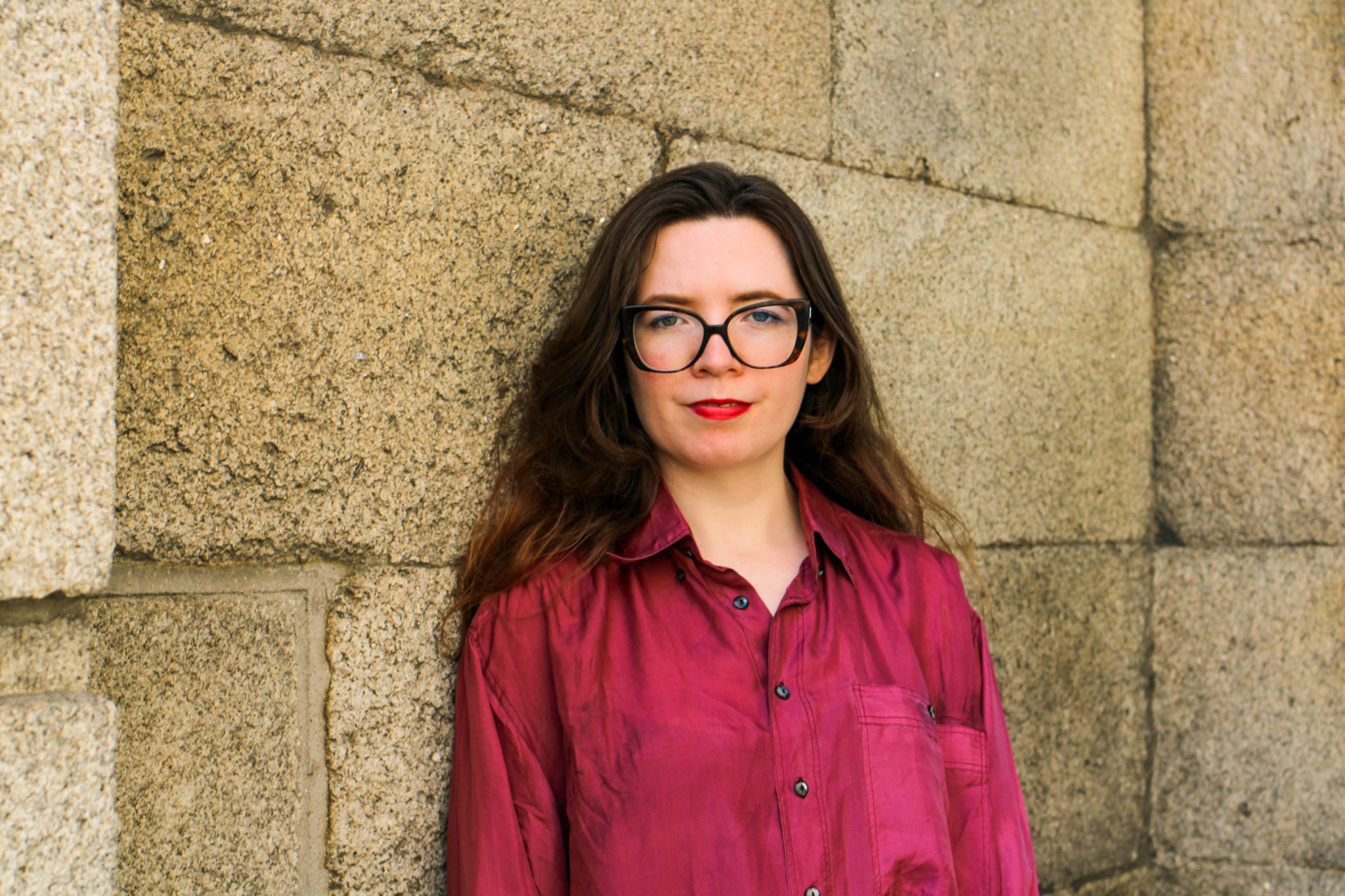 Naiose Dolan By Abigail Ring
Naiose Dolan By Abigail RingAside from the acute character insights, what makes The Happy Couple such a knockout is Dolan’s comedic virtuosity. Indeed, the book is often laugh-out-loud funny – a hugely refreshing change from the unbearable dourness of much contemporary literature. The author’s keen wit and sharp intelligence were again very much in evidence, as we took up the conversational mantle after 36 months.
It’s three years ago since I interviewed you for Exciting Times. How was lockdown for you?
It’s hard to distinguish what was a book reaction, and what was a general state of the world reaction. I was, of course, processing my very first pandemic as the same time I was processing my first publication! The pandemic is probably always going to be the more dramatic experience.
I read in another interview that you started a couple of other books during the pandemic, before putting them aside for The Happy Couple. Did you have the idea for the book for a while?
It’s very iterative and I think that’s true of my writing practice in general. Archie and Luke, for example, first appeared in a short story I wrote in 2018. That was before I had even an agent for Exciting Times, let alone had sent it out to publishers. But when I try different things, it’s never wasted time really. Everything in my head is only theoretical – I have to see it written down to know if it works in that form.
It’s annoying to have to work that way, because it sounds like so much wasted time, but I don’t think it’s actually more work than people who plan ahead. Everything I write is gearing towards the final thing, but because it’s so incremental, it’s hard to say when a given idea started.
How do you go from writing about secondary characters – which Archie and Luke are in The Happy Couple – to finding the main thrust of the story?
It’s a tough one. There were some cases in The Happy Couple where I really had to ask how central certain characters’ decisions are to the action. Uncle Grellan, for example, I could easily get several books out of. But I had to accept that while he’s probably my favourite character, he doesn’t change at all throughout the story.
I don’t think I dealt with that the only way one can – I could probably have forced something into his life that would make him change. But the way I went, I just had to curtail his importance a little bit.
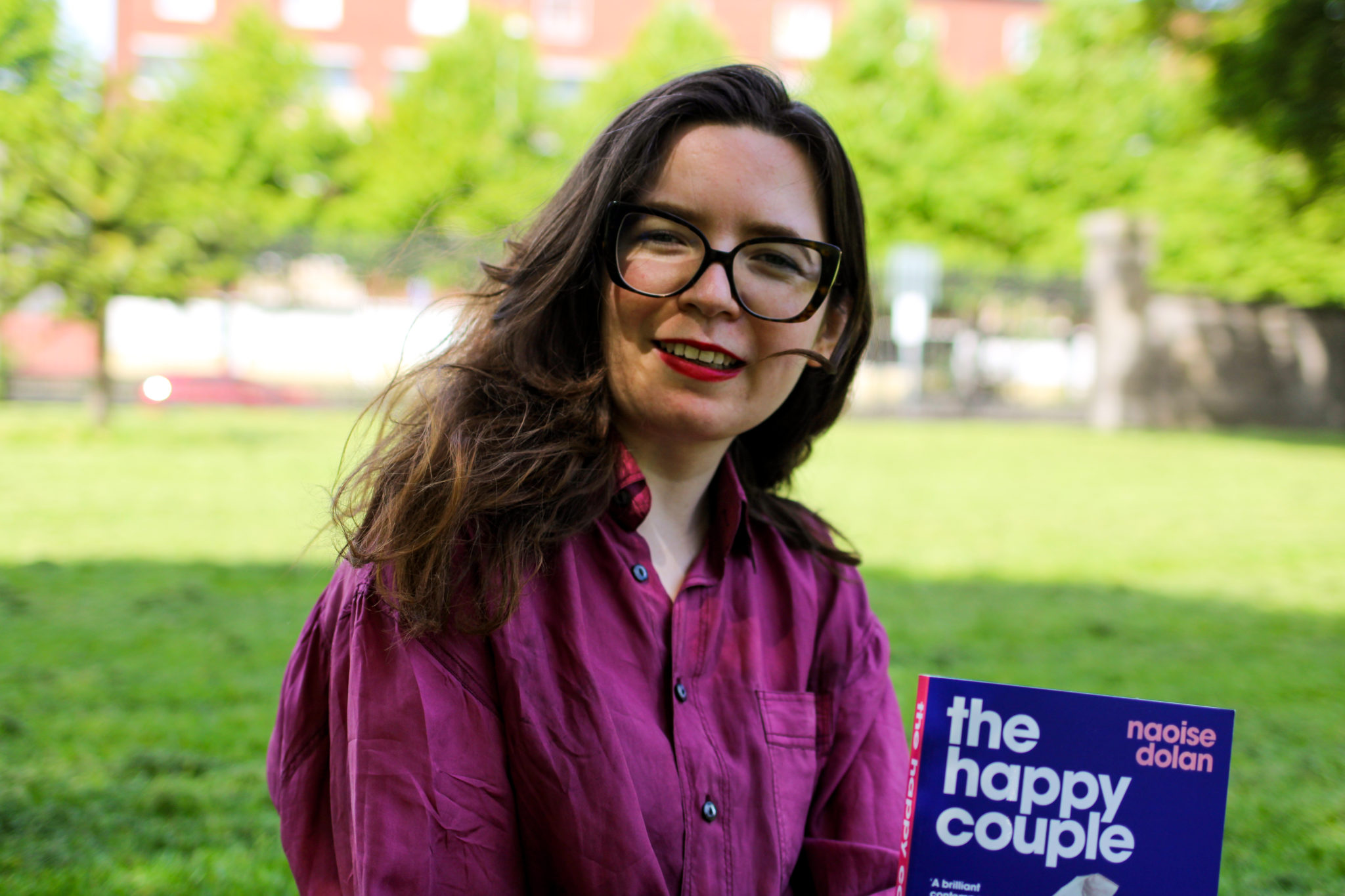 Naiose Dolan By Abigail Ring
Naiose Dolan By Abigail RingCeline and Luke are very young to get married these days. Did you know people who got married at that age, or what inspired you to write about it?
It wasn’t really based on knowing people. I do find increasingly a lot of people are getting married, but probably a couple of years later than the characters. I think perhaps what I did was explicitly dramatise what subconsciously happens in a lot of people’s heads when they’re at a certain stage in the relationship. Which is we either have to break up or take it the whole way, we can’t stay in an in-between stage.
I think that’s what was going on in the conversation in the first chapter. In fiction, you can afford to be a bit more flamboyant than you be in real life. So often when I’m talking to my friends about their relationships, I’m kind of thinking, ‘Which way is this headed?’ You can’t quite say, but you can say it about fake people! Ultimately it’s what you have to decide, often before it goes bad: which way it is going?
Celine is obviously heavily into classical music – is that a long-term interest of yours?
Yeah, definitely. I did want to make sure I showed her as having varied taste, because one unhelpful perception of classical music is that’s an ivory tower phenomenon, and that people who like it never deign to listen to anything else. In my experience, that couldn’t be further from the truth. The mark of a good classical musician is that they’re able to see the value in other genres.
It’s much like fiction. Now and then I would enjoy a well written thriller, it’s just I wouldn’t find it would reward close reading in the way literary fiction might. Similarly, a Beethoven symphony can make me feel things that Taylor Swift can’t, but doesn’t mean that Taylor Swift isn’t excellent at what she does.
I’ve often wondered why I don’t have the same emotional connection to classical that I do to pop music.
For me, a big factor is that it’s the music I played as a kid. In the same way that writing novels has really deepened my capacity to connect to other people, it’s not because I’m ignoring the mechanics, it’s because the mechanics themselves have emotional associations. It’s weird because all I played as piano really, and a bit of euphonium. Even with that, listening to a violin, I still have some idea of what’s going on in the musician’s head. I don’t have that with popular music, because I’ve never massively attempted it.
A lovely detail is Celine wearing gloves to protect her hands. Where did that come from?
I don’t think I’ve observed that specific behaviour, but I read a lot of interviews with classical musicians. Personally, I’ve learned a lot from writing professionally that I never would have learned from reading a million novels. I assumed the same was true for professional musicians. Just knowing their work doesn’t mean that you know about how they spend the day, or if they have an accountant – really basic things like that.
I read maybe a hundred interviews with different professional pianists, and averaged out the things that seemed to be universal. I noticed that a lot of them were neurotic about their hands, so I think that’s where the gloves came in. I don’t know if I saw someone specifically saying they always wore gloves, but I did see a lot of them saying they had hand insurance, or that they were always a bit cautious about using a knife, things like that.
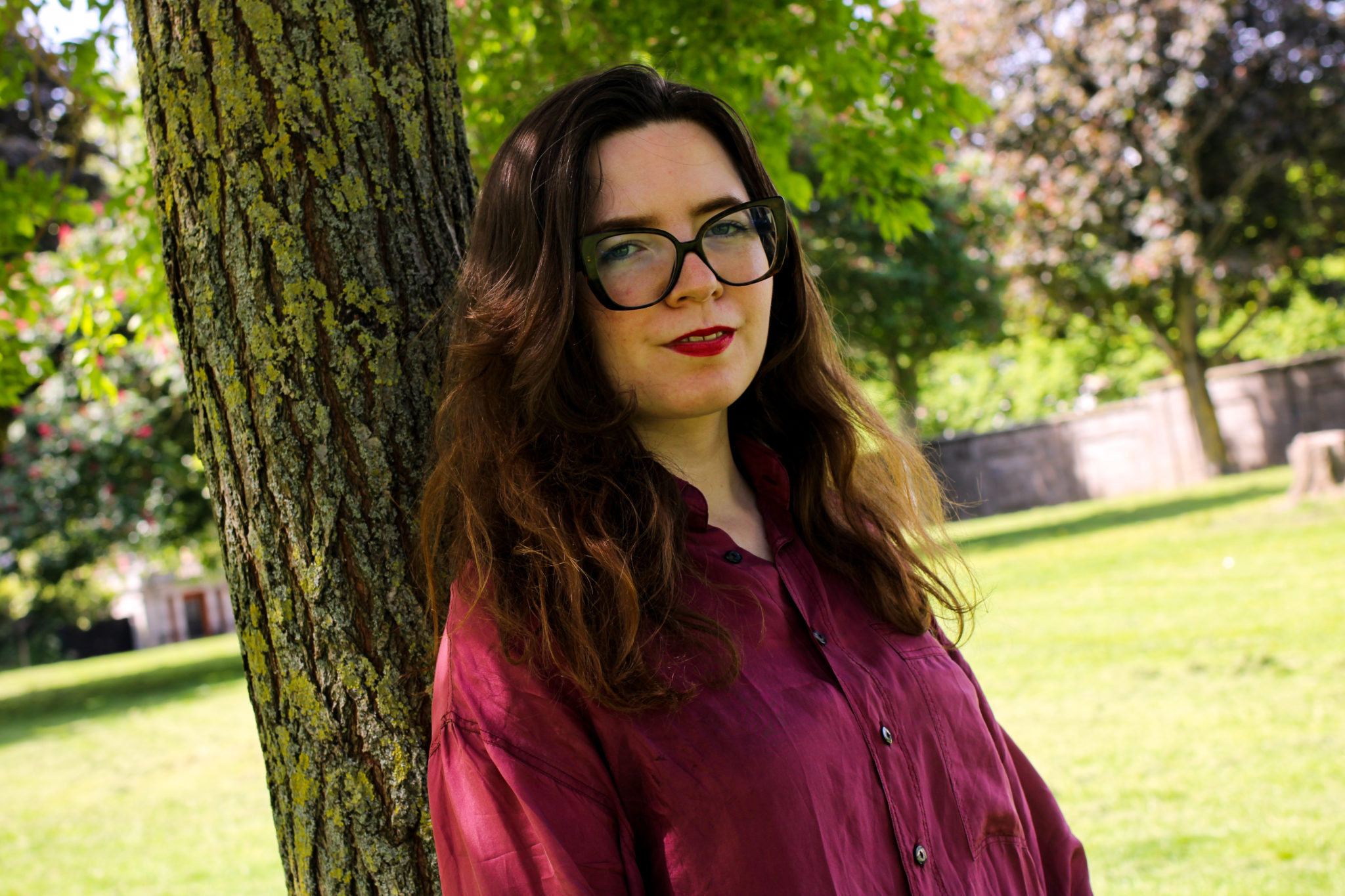 Naiose Dolan By Abigail Ring
Naiose Dolan By Abigail RingDo you think Celine and Luke’s youth is a factor in their mutual uncertainty about the relationship?
When it comes to relationships, probably the general neurosis is a certain loss aversion. And that’s natural, because you can’t really cherish something without being conscious of how much worse your life would be without it. In some ways, commitment can be a response to that – if you get someone to promise a given thing, it soothes the loss aversion in the moment.
But obviously, it heightens the loss aversion over time, because you’ve then got even more to lose. I don’t know how exclusively modern that is. We’ve probably always feared losing the thing we love, but in the absence of as many formal constraints – which made it harder for people to leave when they got married – I don’t know what that’s done to the anxiety.
I don’t think I can say definitively that it’s gone up or down, but the nature of the anxiety is different maybe.
To return to classical music for a moment, did you see Tár?
Yes, massive fan. It makes it really hard to be in Berlin, though, because I always want to write things that are set wherever I am. But when I try to write about Berlin, all I can think about is Tár! It’s this shadow hanging over me, so I need more distance from it before I can write Berlin stuff, I guess.
The Happy Couple is frequently hilarious and you have great comedic flair as a writer. Where does that aspect of your work come from?
It’s definitely something I’ve always admired in many of the writers I look up to. Sometimes, it’s ones who aren’t even particularly known for it – for instance, I find Nabokov very funny sometimes. It goes to show how underrated humour is as a facet of literature. If someone is humourless, that will get commented on, but if they’re funny and it’s not seen as the main thing that they do, it’s just a box ticked and people forget about it.
PG Wodehouse is probably the writer I’ve admired the most who is known for being funny. Reading his books, it was real permission to go, ‘Oh right, I can write something that’s considered a proper book and it can still have jokes.’ If it’s part of your personality, once you’ve seen someone do it, it’s like, why wouldn’t I use it? Because I need it anyway to survive in life. No one would put up with me if I weren’t funny!
I read PG Wodehouse on the back of the Stephen Fry and Hugh Laurie TV adaptations. Did you see any of those?
No, I think I got into him on my own. I can’t even remember how, but I was so transfixed. I listened to the Stephen Fry audiobook recently, and he’s very good, but I think having it so particular and in his voice wasn’t the same. So then I went back to the text, and I think it’s a more fluid comedic voice than it’s often allowed.
He’s great at doing the different characters.What I love about him is that it’s always the kind of joke that the character would make. Obviously, most of them are in the Wooster voice because he’s generally the narrator, but the jokes are always telling you something about the character too.
One of my favourite comedic novelists is Martin Amis, who of course passed away recently. Like him, your books have sections that are laugh-out-loud funny.
I think Amis definitely has been another influence. In Exciting Times, Ava is different to the narrator of The Rachel Papers, but she’s a brat in the same way. Seeing someone else get away with that, and have it taken seriously, will always give me a certain confidence in doing with different characters. I do think it’s particular to our time that I can do it about young women, not young men, and have it be given the same response.
I could have done it 20 years ago and it would have been classified as – I have such mixed feelings about this phrase – but ‘chick-lit’. I think it’s obvious that I I’m primarily interested in style and playing with language, and if there’s a category for writing of that kind, it just makes it easier to find if that’s what you enjoy.
Have you read much of Amis?
Yeah, I’d have read The Rachel Papers, and I really like Money and London Fields. The others less so, but even when he’s being very Martin Amis, the jokes are still usually good.
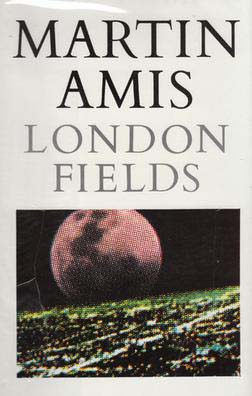
The portrayal of Nicola Six as the femme fatale of London Fields was quite controversial. What did you make of her as a character?
This is where I ask myself what I think the novel is doing, and then it doesn’t really matter to me what he’s trying to do. Because his novels very effectively recreate a particular kind of consciousness. That consciousness does not imagine women as full human beings, and does not imagine many other people as full human beings either.
And if you were any doubt that’s the consciousness being recreated, you can just read his interviews and see how Islamophobic and so on he is. But how I feel about that morally really comes down to the general state of the industry. I don’t think it’s a problem for someone to recreate a given state of consciousness, if there’s enough of a counterweight elsewhere.
There needs to be power on the part of other people to question that, and to show other people in their full complexity. I don’t think I individually can really say if we’re in a place to unproblematically celebrate Martin Amis, with all the horrible things that we know about him, or not. And probably it’s in bad taste to stage a debate about that when we’ve just had the news we’ve had about him.
But you do have a broad point of view.
Broadly my feelings would be, in a vacuum it’s fine to write a book about a particular kind of person, as long as we know that’s a particular kind of person and that their views aren’t fact. And there needs to be availability to see other stories told. There probably fully isn’t, but we’re probably in a better place with that than we were when he was writing.
I felt maybe the complexity of Nicola Six got slightly overlooked in the debate. There are these long introspective passages in London Fields where she’s pondering the universe and astrophysics!
I find when he writes women, when he’s thinking as himself, then they’re full human beings. It’s when he’s remembering that they’re women, and he’s having them comment on their own bodies and things like that, suddenly it falls apart. But when he just accepts that Martin Amis can wear many different skins, and gets into character, then they’re just as complex as his men.
Probably the lesson I take from him is that when I really get into character, I can write convincingly as anyone. But when I’m remembering the ways in which they’re different from me, that’s what’s likely to produce those awkward Nicola Six moments. I do it find it so rare for anyone to have read him nowadays. Certainly, in my generation, a lot of people are now coming to his work and going, ‘Oh, the bogeyman could write!’
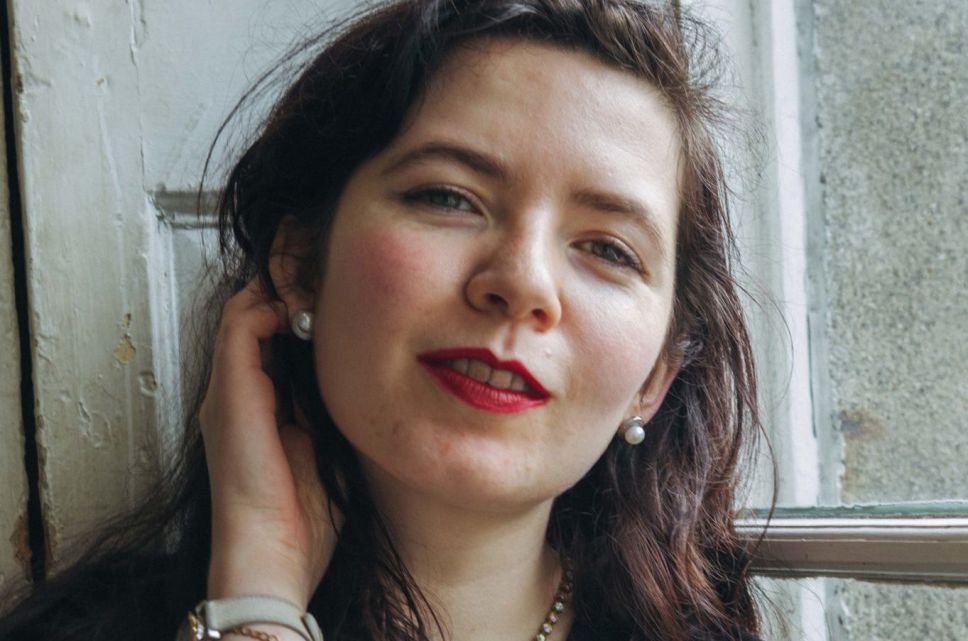 By Ava Holtzman.
By Ava Holtzman.Do you have any sense of what your readership is like? Is it mostly young people?
I’m in an interesting position to assess that now, because of course my readership was mostly invisible to me with a lockdown-published book. But now you’d have queues at signings, and I’d be able to do a broad inventory. It’s quite a wide range. You get people of all ages, a pretty even gender spread, and they’d have very different reasons for coming to it.
Some people will come up to me and say, ‘This book made me dump my bad boyfriend.’ Or you get people commenting on the language, or how they didn’t think it would be for them at all, but they saw me say something in an interview that made them curious. Publishers and marketers have this career incentive to put people in boxes, and go, ‘What’s the average person I think would read this book?’
They’ll direct it at that person and if anyone else happens to hear about it, great. But in practice, a lot of us read novels to get into someone else’s head. We want to find something to relate back to ourselves of course, but we want to vicariously experience another life. And that’s what I’ve seen, which is really nice.
Even with all the various ways to spend our time now, there’s still a very devoted reading audience.
In some ways, because we’re so conscious of other ways that we can use our time, we come to reading knowing that we’re doing it for the experience. I find Gen Z are way more into buying the physical form, it’s actually older people who tend to buy e-books. But we’re more aware of the social experience. Have you heard about Book Bar in London?
I haven’t.
It’s fantastic – it’s run by a woman in her late twenties who’s second generation Irish, I think she said. I met her recently because she was hosting one of my events. It’s really focused on the bar element as much as the books, so it’s really set up to be a social space, and they’ve got book clubs and things. I think that’s really nice. We’re remembering that we read to connect, and it’s lovely to discuss books with people. That’s something Amazon can’t really give you.
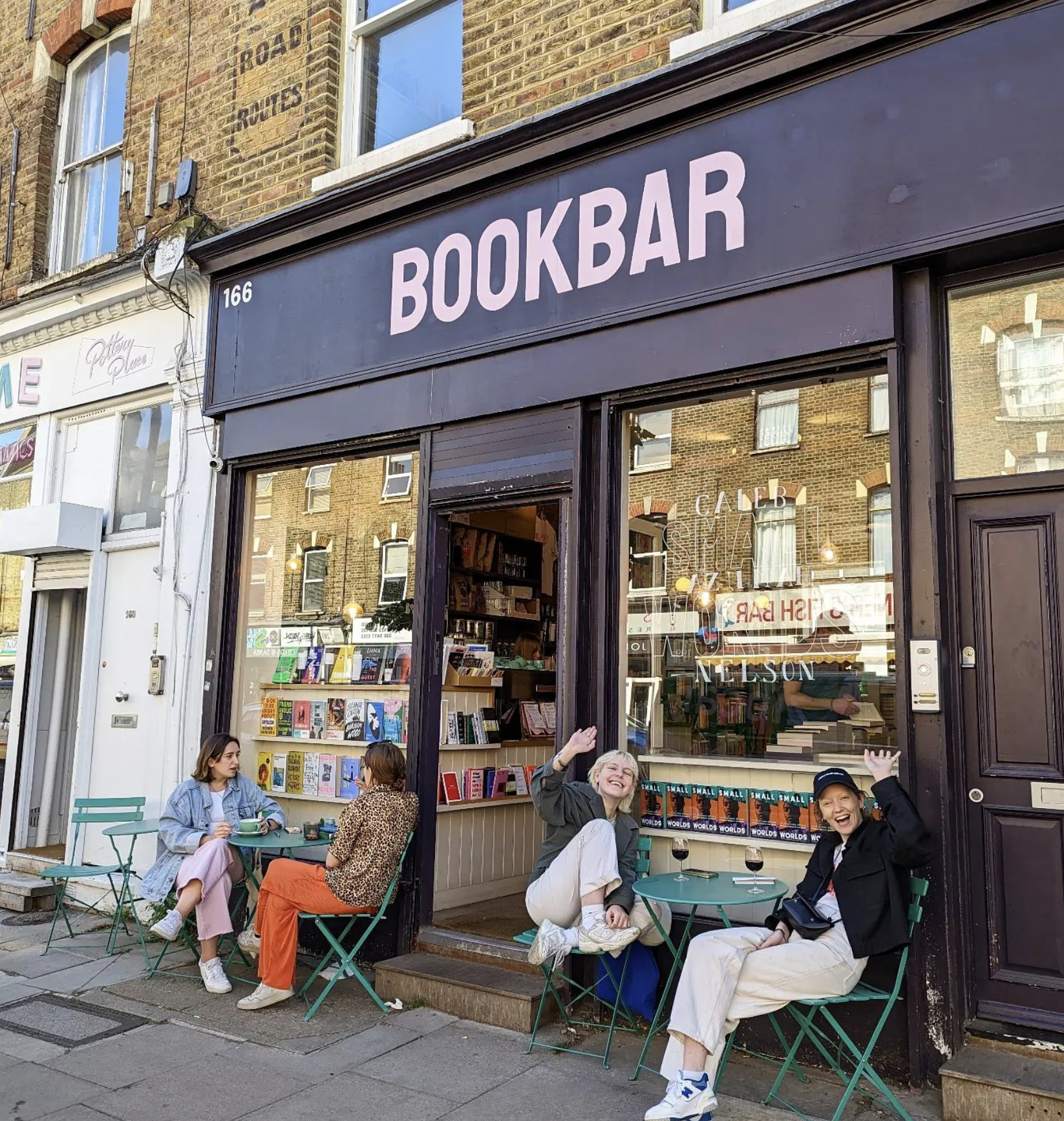 Instagram/@bookbaruk.
Instagram/@bookbaruk.How have you found life in Berlin?
Perfect, gorgeous, it’s definitely for me. I could see myself staying there forever, honestly.
It seems like half of Ireland is moving there!
It sounds unromantic, but the rent is a huge factor. Because interesting people tend not to be rich, and tend to want a level of security in life where they’re not constantly worrying about making rent, and they can just get on and make art. It then attracts such a varied community and it makes everyone more relaxed. Walking around, I just feel everyone has less tightness in their face.
That is changing, but it’s still in a better place than most European capitals are. So I’m not happy with the direction it’s going in, but presently I’d rather be there than Dublin or London.
Who have thought that centre-right Angela Merkel would create the bohemian capital of Europe?!
Yeah, she’s an interesting one (laughs). Well, I would say it’s more that she hasn’t undermined what Berlin has had going for it for quite a while.
Do you keep in touch with what’s happening politically at home? Is Sinn Fein heading up the next government something you’d like to see?
Probably, but I touch base and I’m never pleased with what I find. I don’t vote anymore obviously, so there’s probably not really the same pragmatic need to know about politics. And all Irish politics happens in a framework that isn’t really what I agree with or want.
I think if I were living here, I’d still want to know should I tactically vote. As it is, I have the broad picture that Ireland is still heading in a direction I’m not sure about. But there’s always a response to that, it’s never static.
• The Happy Couple is out now, published by Weidenfeld & Nicolson.
The new issue of Hot Press is out now.
RELATED

- Film And TV
- 15 Oct 25







